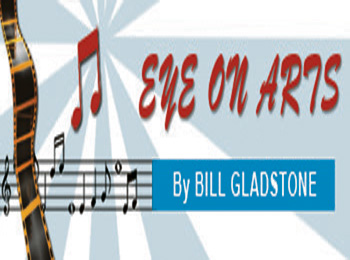Legendary Israeli-American violinist Itzhak Perlman will be a beloved guest of the Toronto Symphony Orchestra later this month when he comes here to play Tchaikovsky’s much-admired Violin Concerto. The program also includes a fascinating but unfinished clarinet concerto that Benjamin Britten began composing for Benny Goodman during World War II. The final arrangement by Colin Matthews will be conducted by Peter Oundjian and features principal clarinet Joaquin Valdepenas.
Roy Thomson Hall, Sept. 25 and 26. Pre-concert chat in the lobby on Sept. 25, 7:15 p.m. www.tso.ca, 416-593-4828.
* * *
Chai Tea: The Toronto Jewish Film Festival presents a screening of When Comedy Went to School, a documentary portrait of that generation of American comics who got their start in the Catskill “Borscht Belt.” Jerry Lewis, Sid Caesar, Jackie Mason, Mort Sahl, Jerry Stiller and many others share terrific stories and jokes.
The 77-minute film, by Meviut Akkaya, Ron Frank and Lawrence Richards, also features plenty of clips from various comedy films and sketches. Chai Tea, City Playhouse Theatre, 1000 New Westminster Dr., Vaughan. Sunday, Oct. 6, tea 4 p.m., film 5 p.m. $15 in advance or at the door. www.tjff.com, 416-324-9121.
* * *
Jedwabne Massacre: The film Aftermath (Poklosie) is based on one of the most controversial wartime episodes in Polish history: the Jedwabne massacre of Jews by their Polish neighbours. Directed by Wladyslaw Pasikowski, the film was based on a 1942 tragedy in which hundreds of Jews were burned alive in a barn, an event long blamed on Nazi Germany.
“I wanted to tell a story that would interest a broad number of Poles because it is one of the most painful parts of our country’s history,” Pasikowski said recently. “We already have a huge number of films on the horrors committed by the Soviets and the Germans, and it’s time to say what bad things we did ourselves.”
The film, based on the book Neighbours by U.S. historian Jan Tomasz Gross, was to be shown this week at Library & Archives Canada in Ottawa, with remarks by Prof. Jan Grabowski.
* * *
Arts in Brief
• Musician Yitzhak Argaman is the featured performer at the Friends of Yiddish annual membership breakfast, Beth Tikvah Synagogue, 3080 Bayview Ave. (between Sheppard and Finch). Sunday, Sept. 29, 10 a.m. for 10:30 breakfast. Members free, guests $15. Please RSVP by Sept. 23 to 416-736-8073 or [email protected].
* * *
Capsule Review: Robert Wise’s 1951 film noir, The House on Telegraph Hill, starring Richard Basehart and Valentina Cortese, offers an early cinematic view of a German concentration camp. A recent addition to Netflix, where it will reach a new generation of viewers, the film opens in Belsen where it depicts a group of zombie-like inmates, dressed in rags but not particularly drawn or emaciated, engaging in a mindless food squabble.
The action soon moves to San Francisco several years later, where concentration camp inmate Viktoria Kowalska arrives at the gloomy mansion that is the key locale of the drama. Having taken over the identity of her dead concentration-camp friend Karin, Viktoria comes to reclaim Karin’s young son, who had been in the care of an elderly aunt, since deceased; the boy now has a guardian. All of Aunt Sophie’s significant wealth will accrue to the child upon adulthood; Viktoria cements her position by marrying the guardian.
Immersed in her false new life, Viktoria discovers that her new husband is even more deeply immersed in deceit: he is secretly trying to kill her and the child in order to keep the fortune for himself and his secret mistress, Margaret the housekeeper. Interesting that the film ignores the depravity of the Germans in order to focus on the evil that lurks within the hearts of ordinary, supposedly decent folks.
In order to redeem her soul and save her life, Viktoria must come clean and tell someone the truth about her deception: her hero is a U.S. army officer who had helped her in a displaced persons camp. Is Viktoria’s psychological burden a sort of survivor guilt, transmogrified into a gothic noir tale set over San Francisco’s scenic and beautifully photographed Telegraph Hill?
In retrospect, the concentration camp scenes seem tame and naïve, and it seems ridiculous that there are apparently no lingering after effects whatsoever from Viktoria’s years in a Nazi hell. (In keeping with a longstanding Hollywood taboo, Viktoria is depicted as Polish, not Jewish.) In addition to its short and noteworthy early treatment of the concentration camp setting, The House on Telegraph Hill is a competent but not outstanding curiosity, rated by Leonard Maltin at 2-1/2 stars.
